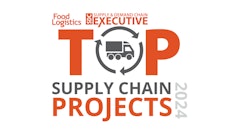Research from Hackett confirms compliance and world-class performance not mutually exclusive
Atlanta, GA — June 11, 2004 — Largely as a by-product of their Sarbanes-Oxley compliance efforts, companies have dramatically improved the reliability of their financial forecasting over the past year, according to 2004 Book of Numbers research into world-class finance performance from The Hackett Group, a business advisory firm and an Answerthink company.
Findings from The Hackett Group's 2004 Finance Book of Numbers showed that, for 2004, a total of 67 percent of management at both world-class and median companies said they felt their forecasting process and reporting outputs had a high-degree of reliability. This represented a significant improvement over 2003, when only 9 percent of median companies and 33 percent of world-class companies made the same claim.
But Sarbanes-Oxley compliance efforts have also stalled and even slightly reversed the trend toward shorter close times, Hackett said. In a reversal of long-term trends, average monthly close times for median companies rose from 5.2 days in 2003 to 5.5 days in 2004. World-class companies actually saw an even larger increase in close times, from 4.3 days in 2003 to 5.1 days in 2004.
Finance Costs Remain Stable
According to Hackett's 2004 Finance Book of Numbers research, median companies now spend 1.08 percent of revenue on finance. This number has decreased only slightly since 2000, when median companies reported spending of 1.20 percent of revenue on finance. For 2004, world-class companies spent 31 percent less than their median peers on finance, only .74 percent of revenue. World-class companies also showed a slight decrease in finance spending over 2000, when they spent .90 percent of revenue on finance.
While finance spending was largely stable over the past few years, this represented a clear step backward overall. Until recently, finance costs for median companies dropped significantly each year, for a 43 percent total decline since 1992.
While companies continue to cut costs in some areas, Hackett found that increased spending on compliance efforts has largely offset these savings. At median companies, spending on compliance has risen 38 percent since 2000, from .065 percent of revenue to .090 percent.
Hackett's detailed analysis showed that labor costs continue to represent the lion's share of finance expenditures, and are also an area where the performance of world-class and median companies clearly diverges. World-class companies spend only .46 percent of revenue on labor costs, supporting a staff of 63 FTEs/billion of revenue for finance, while median companies spend 65 percent more (.76 percent of revenue) and have almost double the finance staff, at 122 FTEs/billion of revenue.
World-class companies have reduced finance staff in part through the use of technology. According to Hackett's research, world-class companies spend 31 percent more on technology per full-time finance employee than their median peers. They make significantly more efficient use of enterprise resource planning (ERP) systems. While median companies rely on an average of two ERP systems, world-class companies now show an average of just one ERP system.
However, many companies are missing the opportunity to use Sarbanes-Oxley compliance efforts as a way to drive toward world-class performance, reducing costs and improving both efficiency and effectiveness, Hackett found.
"With the [Securities and Exchange Commission (SEC)] deadline looming, companies are making significant progress toward putting the necessary internal controls in place to achieve Sarbanes-Oxley compliance," said Hackett's chief research officer Richard Roth. "Driven by this activity, and by other factors, including increased expectations from shareholders concerning overall corporate transparency, the reliability of companies' financial forecasts have improved dramatically.
"But the work is clearly taking its toll in other areas," continued Roth. "For years companies have been able to cut overall finance costs and reduce time to close by streamlining their operations, implementing best practices and improving their use of technology. For the moment, this has become almost impossible, because companies are being forced to spend anything they can save in other areas on Sarbanes-Oxley compliance initiatives. The changes in procedures, combined with greater overall scrutiny and review of financial results and forecasts by executives, auditors, and even, once they're made public, investors and financial analysts, mean that it takes longer to close the books each month.
"Our results show that most companies are clearly taking a very labor-intensive approach to solving these finance problems, investing significant time and energy to grind out the results they need," explained Roth. "This is a shame, because by doing this they're missing a real opportunity. Hackett's research proves that it clearly costs significantly less to run a world-class finance operation. Peak efficiency and effectiveness save money, and companies could be turning Sarbanes-Oxley into a wake-up call to drive process improvements and reap these rewards."
The Hackett Group, a business advisory firm, specializes in best practices research and process benchmarking. Hackett offers analysis backed by research at more than 2,400 client organizations, including 93 percent of the Dow Jones Industrials.
Hackett's 2004 Book of Numbers series has been produced annually for the past 12 years. This year, Hackett has made the research an integrated part of its Executive Advisory Programs, which are designed to address the needs of C-level executives in finance, information technology, human resources and procurement through a combination of progress reports, best practices research, confidential advisory services, and member networking opportunities.
The source of Hackett Group's 2004 Book of Numbers research into world-class finance performance is the company's continuously updated database of best practices and corresponding performance metrics. To receive Hackett's world-class designation, an organization must score in the top 25 percent of Hackett's database in both efficiency (cost and productivity) and effectiveness (quality and value) output metrics in a given functional area. In this way, Hackett defines "world-class" with empirical data, isolating the characteristics shared by today's world-class organizations in finance, information technology, human resources, procurement and other areas.

























